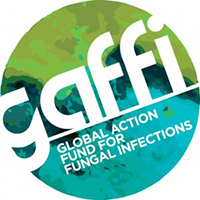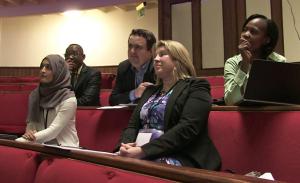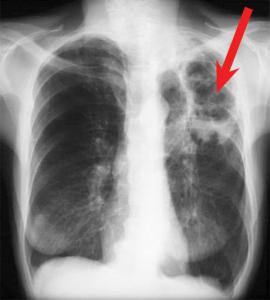Is it TB or a Fungal Lung Infection? New Life Saving Guidelines Released Today
To address this, the Global Action Fund for Fungal infections, GAFFI, convened an expert international panel to develop a workable definition of CPA for resource-constrained countries. In the studies on CPA done to date several different combinations of criteria have been used to define the disease. In most of these studies a CT scan of the chest is necessary, but this facility is not routinely available for the majority of the world’s population.
The panel debated several iterations and combinations of defining characteristics for CPA which are published online today in the prestigious Emerging Infectious Diseases journal. These are the final conclusion – 1, 2 and 3 required:
1 - Symptoms for 3 months or longer (haemoptysis and/or persistent cough, and/or weight loss) (other symptoms are common, but not required, notably fatigue, chest pain, breathlessness and sputum production)
AND
2 - Radiological features (progressive cavitation on chest imaging AND/OR intracavitary fungal ball AND/OR pleural thickening or pericavitary fibrosis or infiltrates all adjacent to cavities)
AND
3 - Microbiological evidence of Aspergillus infection (positive Aspergillus-specific IgG and/or sputum microscopy showing hyphae consistent with Aspergillus and/or Aspergillus growth on 2 or more sputum or other respiratory samples)
In addition the panel noted that TB and non-tuberculous mycobacterial infection should be ruled out with smear, GeneXpert and/or mycobacterial culture. It is possible for mycobacterial infection and CPA to be present concurrently, and further testing is required.
Professor David Denning who lead the workshop (University of Manchester and President of GAFFI) stated: “Basing a diagnosis of TB solely on a chest radiograph, without laboratory confirmation, leads to many errors. CPA and other fungal lung infections are slower in evolution than TB, but too often lead to years of ill health and then death if not diagnosed. Recognising that some tests (fungal cultures and CT scanning) are not available in many resource-constrained countries, we have developed a diagnostic algorithm and set of diagnostic criteria to reduce the number of incorrect ‘TB’ diagnoses.”
Notes to Editors
GAFFI is a charitable foundation (NGO) focused on reducing deaths and illness caused by fungal disease. Fungal diseases are neglected worldwide by public health authorities. GAFFI efforts are directed at:
1. Identifying and publicising gaps in diagnostics and treatments for fungal diseases.
2. Consulting on how healthcare could be improved through facilitating training, encouraging companies to expand their markets and recommending improvements in infrastructure.
3. Estimating the burden of serious fungal diseases, country by country. Over 75 country estimates are complete, and many of these are published
4. Developing, implementing and evaluating countrywide diagnostic programs - Guatemala (fungal infections in AIDS) the first.
5. Influencing national and international agencies to ‘adopt’ fungal diseases alongside existing programs including TB, microbiology, AMR, NTDs and incorporation of key generic antifungals onto the WHO Essential Medicines List.
6. Focusing diagnostic improvements for GAFFI’s priority diseases.
GAFFI issued a 10-year Roadmap in 2015 calling for ‘95-95 by 2025’, summarized as 95 per cent of patients with serious fungal infections are diagnosed and treated.
Luisa Morlano
The Goodwork Organisation Ltd
+442087471488
email us here
Legal Disclaimer:
EIN Presswire provides this news content "as is" without warranty of any kind. We do not accept any responsibility or liability for the accuracy, content, images, videos, licenses, completeness, legality, or reliability of the information contained in this article. If you have any complaints or copyright issues related to this article, kindly contact the author above.



